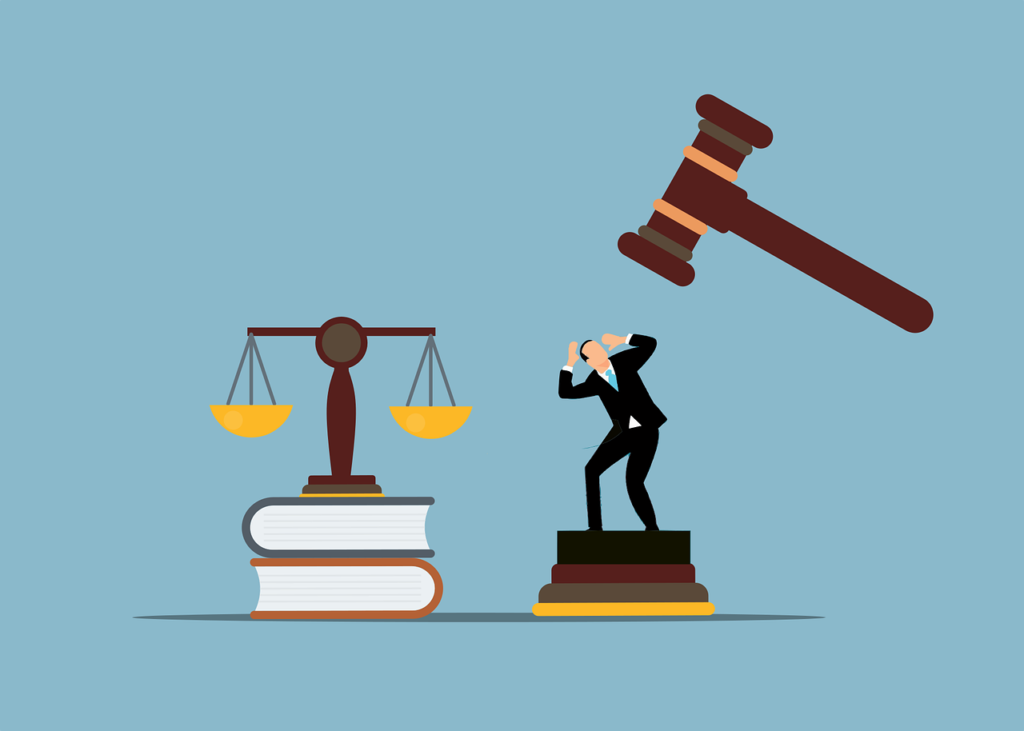Published On: 12th August, 2023
E-commerce Regulations and Consumer Rights in India
INTRODUCTION
India gained independence from British rule in 1947 and while the nation at that juncture was making slow progress, in the 21st century India has come a long way and done commendable development, and with this development came commerce which according to the Black’s Law Dictionary means, “Intercourse by way of trade and traffic between different peoples or states and the citizens or inhabitants thereof, including not only the purchase, sale, and exchange of commodities, but also the instrumentalities and agencies by which it is promoted and the means and appliances by which it is carried on, and the transportation of persons as well as of goods, both by land and by sea.”[1] With the sea in the Southern hemisphere, India flourished in trade and commerce. For instance, India became the top exporter of silk, cotton, sugar, precious stones, and other goods such as spices.
With the evolution and development of the nation, a new form of commerce gained prominence in India, electronic commerce or e-commerce, the internet version of commerce. In the case law, Spicejet Ltd. vs Ranju Aery[2], in his judgment, Justice Jasbir Singh (Retd.) said, “In the past one and a half decade, E-commerce has emerged as a major source of business. Almost all articles of use can be bought and services availed online through internet. The phrase “e-commerce,” which has no accepted definition, refers to a style of conducting business using electronic channels as opposed to more traditional physical channels. In the above process, in a single transaction, two or more than two parties may be involved.”[3]
Additionally, the liberalization of the economy that followed the beginning of the reforms in 1991 drew Multinational Corporations (MNCs) and led to a significant expansion of the Information Technology (IT) sector. Liberalization policies were implemented, resulting in the abolition of the license system, high taxes, import restrictions, and the expansion of Small and Medium Enterprises (SMEs). Early IT and SME internet users were responsible for this development.[4] From 1995 till now, India has come a long way, and in the present years, many e-commerce platforms provide consumers around the nation with a huge selection of goods and services. While there is no denying the convenience of buying from the comfort of one’s own home, the absence of real-world exchanges and the less time-consuming and hassle-free nature of such transactions have created specific issues.
E-COMMERCE LAWS IN INDIA
The Indian government and courts through the years have taken the initiative to create detailed laws to assure consumer protection and promote ethical business practices in the online market to address the complexity of e-commerce activities. These rules are designed to strike a careful balance between encouraging company expansion and defending consumers’ interests. Laws governing e-commerce in India are the Income Tax Act of 1961[5], the Consumer Protection Act of 1986–2019[6], the Information Technology Act of 2000[7], the Foreign Exchange Management Act of 1999[8], the Payment and Settlement Systems Act of 2007[9], the Companies Act of 2013[10], and laws about the Goods and Services Tax. For instance, the Consumer Protection Act of 2019 under Section 94[11] addresses steps to stop unfair business practices in e-commerce, direct sales, etc. It specifies that the Central Government may adopt such measures in the prescribed manner for the objectives of avoiding unfair commercial practices in direct selling and e-commerce, as well as to protect the interests and rights of consumers. The Information Technology Act, 2019 under Section 84A[12] imposes a responsibility on the government to regulate and promote e-commerce. It additionally has to ensure the safe usage of electrical devices.
In 2018, the Government of India unveiled a draft of a much-needed e-commerce policy. The formulation of such a policy must take into account both internal and global problems. For instance, the suggestion to create a joint KYC[13] registry will lessen the expense and workload associated with complying with KYC requirements by the systems used for such payments. Similarly, the regulations allowing for controlling ownership despite a promoters’ minority share will help young business owners to expand and seek financial support without ceding control of their firm.[14]
Despite the legislative frameworks in place, e-commerce businesses in India face several legal obstacles. One of these difficulties is the ambiguity around the responsibility of e-commerce platforms for third-party sellers[15]. Divergent opinions exist over whether e-commerce marketplaces should be held accountable for the calibre of the goods offered on their platforms, raising questions about their legal standing as middlemen. Concerns about the security and privacy of consumer data in the e-commerce ecosystem have also been highlighted by the lack of comprehensive data protection regulations.
CHALLENGES FACED BY THE E-COMMERCE SECTOR
Some of the challenges faced by the e-commerce market in India are connectivity issues in remote areas, cybersecurity threats, limited reach in the rural market, and counterfeit[16] products, and they can be overcome by taking measures such as
1. Connectivity issues in remote areas- Some locations in India lack proper connection through transportation. When doing deliveries in such locations, they can team up with local transportation providers like rickshaws, bicycles, or animal-drawn carts to connect with the remote areas, which in turn can also help to generate employment in the locality.
2. Cybersecurity threats- Often, e-commerce sites face a cybersecurity threat that can affect their business adversely. For this, they can update their cybersecurity from time to time, and they should communicate with the consumers about data sharing and their privacy policy which must comply with the government’s rules and regulations.
3. Limited reach in the rural market– The e-commerce market can tackle this obstacle by partnering up with local sellers and retailers who are accustomed to the area they own businesses in and tailoring products according to the needs of the rural population.
4. Counterfeit products– Some sellers registered with e-commerce websites can sell counterfeit products and to overcome this they can opt for a strict verification process and reprimand such sellers by imposing fines and blacklisting.
CONSUMER RIGHTS IN INDIA
To guarantee that its citizens are given the best protection possible, every nation offers a set of rights to the consumers, and with the advancement of technology and a major rise in the usage of e-commerce platforms customers have the right to the necessary information while making purchases of products and services. Manufacturers, merchants, sellers, and businesses may take advantage of customers by deception, unfair business practices, and other means even when they are aware of their obligations to society. Hence, consumer rights are an integral need of today’s world.
“A market without consumers will be a night sky without the stars and moon. Protect their rights and serve them the best for greater reputation and fame.”[17]
The Consumer Protection Act, 2019[18] protects consumers against any unfair trade practice. The Act under Section 2 (9)[19] provides six fundamental rights to the consumers in India.
FUNDAMENTAL RIGHTS OF CONSUMERS IN INDIA
1. The right to be guarded against the marketing of goods, services, or products that endanger life and property: The right to protection shields consumers from being marketed for harmful and unsafe goods and services that endanger their life and property. An electrical appliance, gas cylinder, or other product with a manufacturing flaw may endanger the consumer’s health, life, or property. Under the right to be protected, consumers have the right to request the guarantee and quality of the goods before completing a purchase. To safeguard themselves against any faulty product it is advised that they should buy an AGMARK[20] or ISI[21]-approved.
2. The right to information regarding the standard, price, potency, purity, quality, and other factors of the goods, services, or other items, as appropriate, to safeguard the customer against deceptive business practices: To protect consumers, they have a right to information that specifies that consumers should be informed about the quantity, quality, standard, purity, potency, and price of products, goods, and services. Manufacturers or sellers should provide consumers with all the information they need to make educated product decisions.
3. The right to be guaranteed access to a variety of goods, products, or services at reasonable rates: Customers have the option to buy a variety of goods and services at reasonable prices, ensuring a fair trade. The right to essential goods and services is also included. The freedom to choose ensures that consumers receive high-quality products and services.
4. The right to be heard and the assurance that their interests would be taken into account at the proper forums: The consumers have a right to raise their concerns and complaints in a proper forum through a proper legal channel. Such forums are set at district, state, and national levels to address the grievances of the consumers.
5. The right to file a complaint against unethical business practices, restrictive trade practices, or dishonest consumer exploitation: The consumers have a vested[22] right to file a complaint through a proper legal channel against unfair commercial practices, fraud, counterfeit products, or exploitation. They have a right to seek a proper redressal for their grievances.
6. The right to be aware: A consumer has a right to get the information necessary to make informed purchases. Consumers have the right to be educated and informed about the products they want to buy, so being informed about a product ensures that they are aware of their rights to prevent exploitation and can make correct and well-informed decisions.
INDIAN CASE LAWS UPHOLDING CONSUMER PROTECTION
Several case laws ensure protection for consumers, such as
Justice D.Y. Chandrachud and Justice Anoop V. Mohta adjudicated the regulation of online trading platforms and their compliance with securities legislation in the case of MCX Stock Exchange Ltd. v. Securities and Exchange Board of India[23]. According to the Supreme Court, to safeguard investors and maintain market integrity, internet trading platforms must abide by the rules established by the Securities and Exchange Board of India.
The case Amazon Seller Services Pvt. Ltd. v. Love Kumar Sahu.[24], questions the legality of seller-determined refund policies and discusses the guidelines for consumer protection under the IT Act, emphasizing the need for consumer confidence and appropriate protections for growth in the e-commerce sector.
In the case of Indian Medical Association v. VP Shantha[25], the Supreme Court held that the Consumer Protection Act, 2019 does not apply to government hospitals where services are free. However, if free services are offered to the impoverished, it is covered as a “service”.
Visaka Industries Limited v. Google India Pvt Ltd. held that based on guilt being established by a criminal complaint filed before the effective date of the Information Technology (Amendment) Act 2008, Google was found to be accountable as an intermediary in this case.
CONCLUSION
To conclude, it would be wise to say that both the market and consumers will evolve further with laws and regulations that the government will enact. Fostering a safe and user-friendly online marketplace is attainable with a strong regulatory framework and efficient enforcement which is possible through consumer education and market regulation. The development of e-commerce laws safeguarding the rights of consumers has been crucial in forming today’s market. The necessity to strike a delicate balance between promoting economic development and protecting consumer interests became evident as the nation saw an increase in online shopping platforms with evolution since 1995. Consumer trust and confidence in online transactions have increased as a result of the proactive steps the Indian government took to create comprehensive e-commerce rules and e-commerce websites have also flourished with safeguards and measures provided for them under various acts.
Reference(s):
[1]‘Commerce Definition & Meaning – Black’s Law Dictionary’ (The Law Dictionary, 21 February 2014) COMMERCE Definition & Meaning – Black’s Law Dictionary (thelawdictionary.org) accessed 25 July 2023
[2] Spicejet Ltd vs Ranju Aery (2017) 347 1 (NATIONAL CONSUMER DISPUTES REDRESSAL COMMISSION NEW DELHI)
[3]Spicejet Ltd vs Ranju Aery (2017) 347 1 (NATIONAL CONSUMER DISPUTES REDRESSAL COMMISSION NEW DELHI)
[4] Mahipal D and Shankaraiah K, ‘E-Commerce Growth in India: A Study of Segments Contribution’ (Academy of Marketing Studies Journal, 21 May 2018) E-commerce Growth in India: A Study of Segments Contribution (abacademies.org) accessed 26 July 2023
[5] Income Tax Act 1961.
[6] Consumer Protection Act 2019.
[7] Information Technology Act 2019.
[8] Foreign Exchange Management Act 1999.
[9] Payment and Settlement Systems Act 2007.
[10] Companies Act 2013.
[11] Consumer Protection Act 2019, s 94.
[12] Information Technology Act 2019, s 84A.
[13] “KYC stands for Know Your Customer (or Client). It is used by financial, fintech, banking, online lending and other organizations to verify the identity of their customers, for a wide array of reasons. The term KYC is also used to refer to the specific laws and standards introduced by authorities to describe how companies ought to verify client and customer identity when their activities could constitute risks linked to money laundering, bribery and other illegal or unlawful activity.” (KYC)
[14] Atreya Mathur and others, ‘Ecommerce Laws in India – All You Need to Know’ (iPleaders, 10 September 2018) eCommerce laws in India – All you need to know – iPleaders accessed 25 July 2023
[15] “A third-party seller is an independent seller who offers a variety of new and used products to customers of other businesses. For instance, a third-party seller may purchase goods from a manufacturer and sell those products on the Amazon marketplace. When someone orders their product, they will ship it directly from their business location. Amazon won’t be involved in the process.” ‘Third-Party Seller’ (AfterShip) Third-Party Seller – AfterShip accessed 25 July 2023
[16] “The definition of “counterfeit” is to be found, in Section 28, Indian Penal Code, A person is said to “counterfeit” who causes one thing to resemble another thing, intending by means of that resemblance to practice deception, or knowing it to be likely that deception will thereby be practiced.” Velayudham Pillai And Anr vs Emperor [1937] Indian Kanoon (King)
[17] Rajpurohit L, ‘उपभोक्ता संबंधित अधिकारों और प्रक्रिया के बारे में जानिए’ (Live Law Hindi, 26 November 2022) उपभोक्ता संबंधित अधिकारों और प्रक्रिया के बारे में जानिए | Know about consumer rights and process (livelaw.in) accessed 25 July 2023
[18] Consumer Protection Act 2019.
[19] Consumer Protection Act 2019, s 2(9).
[20] “AGMARK is a certification mark for agricultural produce, assuring that they conform to a grade standard notified by Directorate of Marketing & Inspection (DMI), Department of Agriculture, Cooperation and Farmers Welfare, Ministry of Agriculture & Farmers Welfare under Agricultural Produce (Grading Marking) Act, 1937.” ‘Circulars & Advisories’ (Food Regulatory Portal – One Nation, One Food Law) Food Regulatory Portal – One Nation, One Food Law (fssai.gov.in) accessed 25 July 2023
[21] “Indian Standards Institution (ISI) was established on 6 January 1947 as a Registered Society under the Societies Registration Act, 1860. Being the National Standards Body of India, the organization had a clear mandate of preparing and promoting Standards for adoption by Indian Industry.” ‘Product Certification Overview’ (Bureau of Indian Standards) Product Certification Overview – Bureau of Indian Standards (bis.gov.in) accessed 25 July 2023
[22] “Accrued; fixed; settled; absolute” ‘Vested Definition & Meaning – Black’s Law Dictionary’ (The Law Dictionary, 7 November 2011) VESTED Definition & Meaning – Black’s Law Dictionary (thelawdictionary.org) accessed 26 July 2023
[23] MCX Stock Exchange Ltd v Securities and Exchange Board of India [2012] Indian Kanoon (Supreme Court of India)
[24] Amazon Seller Services Pvt Ltd vs Love Kumar Sahu [2018] Indian Kanoon (Chhattisgarh State Consumer Disputes Redressal Commission)
[25] Indian Medical Association vs VP Shantha (1995) 6 651 (SCC Online)




